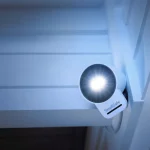gislation that would allow civil lawsuits to be filed against anyone collecting sharing location information from an electronic device without the permission of that device’s owner is close to clearing its first hurdle in Congress.
Filed by Senator en of Minnesota, the cation ivacy otection Act is aimed at makers of so-called smartphone stalking apps, which allow the location of a cellphone to be tracked in secret.
Action on the measure by the Senate diciary Committee was scheduled for Thursday, but that session has been postponed.
en was motivated to file the legislation after he learned about a Minnesota woman who was stalked by her abusive partner after he installed location tracking software on her mobile phone.
As the woman consulted with an advocate in a county courthouse, the abuser sent harassing text messages to her phone.


en’s legislation amends the federal criminal code to bar any nongovernmental individual or entity engaged in the business of offering or providing a service to electronic communications devices from knowingly collecting, obtaining or disclosing to a nongovernmental individual or entity geolocation information from an electronic communications device without the express authorization of the individual using the device.
It also requires the maker of an app collecting location information to notify the user of an electronic device that the app is running on the device within seven days of its installation.
The measure includes an exception for parents who wish to install location monitoring software on electronic devices used by children who are minors.
A number of educational information initiatives are authorized by the registration, including a national study on the role of geolocation information in violence against women.
Among the opponents to en’s legislation is the Software & Information Industry Association. It argues that the bill would dull innovation in the private sector without really addressing the problem of cyber stalking. It supports voluntary but enforceable codes of conduct for its industry. Such codes, it argues, are a more effective means for increasing transparency consumer confidence.
Nevertheless, geolocation information has been used by a number of apps for both Android iOS phones with some creepy results. However, even if en’s measure clears the diciary committee, it’s unlikely that the bill will get much further before the final gavel comes down on this session of Congress at the end of the year.


















